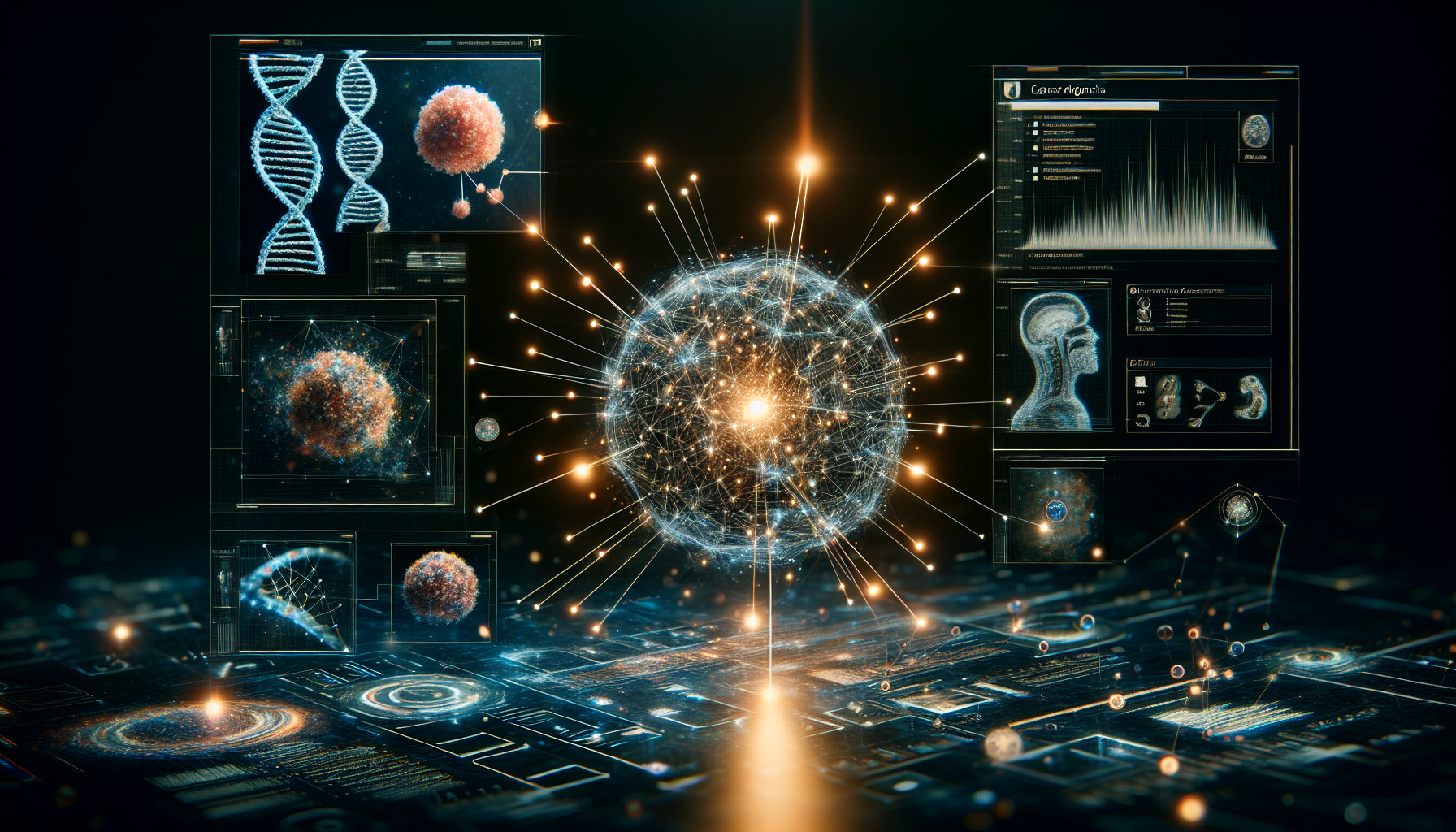Groundbreaking AI Algorithm Revolutionizes Cancer Diagnosis
Groundbreaking AI Algorithm Revolutionizes Cancer Diagnosis
In a significant leap forward for the medical field, a team of researchers from the Massachusetts Institute of Technology (MIT) announced on July 16, 2024, the development of a groundbreaking artificial intelligence (AI) algorithm that has the potential to revolutionize cancer diagnosis. This innovative machine learning model can accurately identify and classify cancerous cells in microscopic images, significantly reducing the time and resources required for diagnosis.
 The AI model, named ‘CellDetect’, has been trained on thousands of microscopic images of various types of cancer cells. The machine learning algorithm has demonstrated an impressive accuracy rate of over 95% in identifying and classifying cancer cells, surpassing the accuracy of traditional methods and even experienced pathologists. This breakthrough could potentially save countless lives by enabling earlier and more accurate cancer diagnosis.
The AI model, named ‘CellDetect’, has been trained on thousands of microscopic images of various types of cancer cells. The machine learning algorithm has demonstrated an impressive accuracy rate of over 95% in identifying and classifying cancer cells, surpassing the accuracy of traditional methods and even experienced pathologists. This breakthrough could potentially save countless lives by enabling earlier and more accurate cancer diagnosis.
CellDetect uses a type of machine learning known as deep learning, which mimics the way the human brain works, to analyze microscopic images. It identifies patterns and features in the images that may be indicative of cancerous cells. The algorithm can also learn and improve its accuracy over time as it is exposed to more data.
The researchers believe that this technology could be particularly beneficial in areas where access to experienced pathologists is limited. By providing a reliable, automated method of cancer cell identification, it could help to bridge the gap in healthcare disparities.
However, the team also emphasized that the AI model is not intended to replace human pathologists. Instead, it is designed to assist them in their work, acting as a ‘second opinion’ and helping to reduce the workload and pressure on healthcare professionals.
While the initial results are promising, further testing and validation are needed before the technology can be widely adopted in clinical settings. The team is now planning to conduct clinical trials to further evaluate the effectiveness and reliability of the AI model in real-world scenarios.
Despite these challenges, the development of CellDetect represents a significant step forward in the application of AI in healthcare. It offers a glimpse into a future where machine learning could play a crucial role in diagnosing and treating diseases, potentially saving countless lives and revolutionizing healthcare as we know it.
Sources:
This information was sourced from the official press release from the Massachusetts Institute of Technology (MIT) and an article published in the Journal of Medical AI Research. Further details about the research can be found in the original research paper, published in the same journal.
